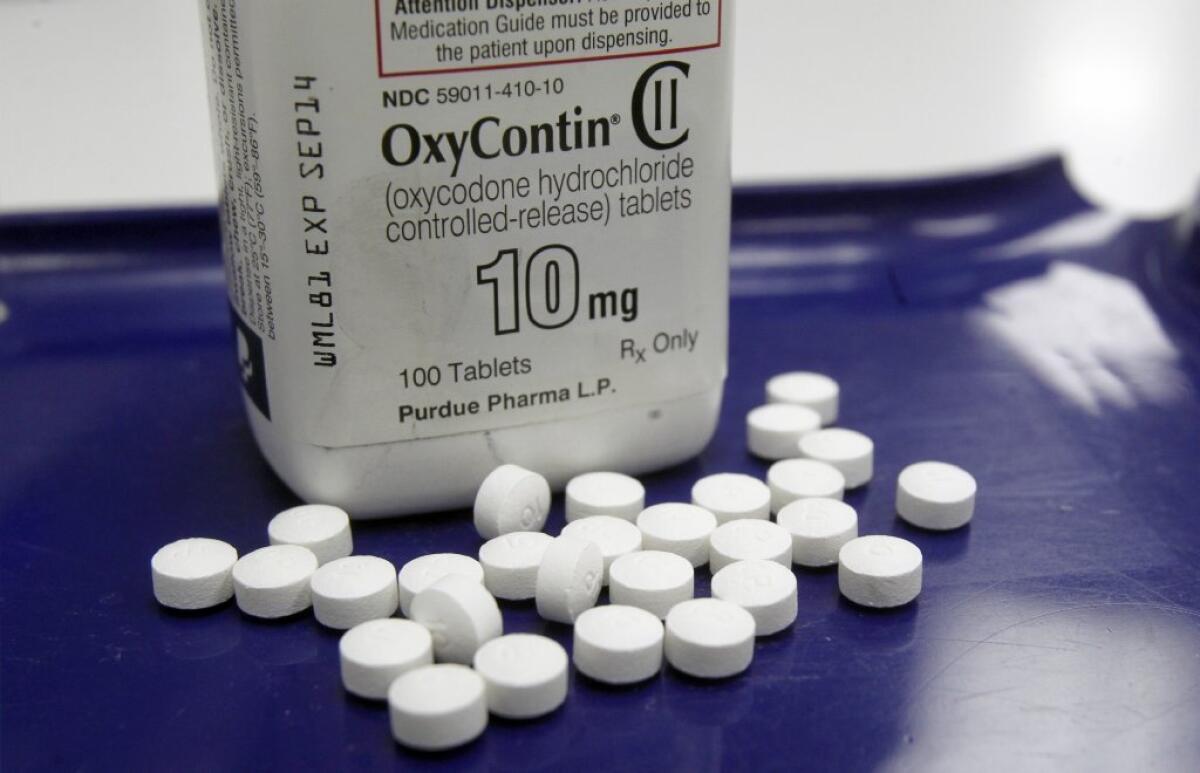Op-Ed: How do you treat pain when most of the world’s population can’t get opioids?

- Share via
In the United States, where doctors write more than 250 million prescriptions for painkillers a year, the frequency of abuse and overdose represents a public health crisis. More than 15,000 Americans died from an overdose of prescription opioids in 2013.
In other parts of the world, however, the crisis is that strong painkillers such as morphine aren’t available at all. More than 70% of the world’s population live in countries with no access to opioids. That has been the case in India, where I am a palliative care physician. Though the situation is slowly improving as result of reforms made in 2014, most people in India can’t get an opioid painkiller even when they’re dying of cancer. Like torture victims, these people say that their suffering is simply unbearable and that they would do anything to make it stop.
Consider this: A few years ago, Gopalan, a man with an ugly scar around his neck, came to see me. When I asked about the scar, he looked away in shame. He had tried to hang himself to end the leg pain caused by a disease of his blood vessels. His teenage children discovered him and saved his life.
Gopalan had, only at this desperate stage, been sent to my palliative care center by his hospital, which had no morphine or any doctor trained in its use. I could treat his pain here only because palliative care centers, unlike hospitals, have access to morphine. He got to spend his last few weeks with his family reasonably free of pain. In the end, however, he died not from his disease, but from kidney damage caused by the high doses of over-the-counter painkillers he had taken before.
Morphine costs pennies per dose, so why was it nearly impossible to get in most parts of India? This tragic situation has its origin in good intentions. As in many countries, drug dependence is a major social problem here. But fear of drug abuse can rob policymakers of their sense of reason. In 1985, no doubt encouraged by America’s own war on drugs, India’s government put in place laws that dealt not only with illicit drugs, but also created new rules around pharmaceutical products containing opioids. Those laws included a mandatory minimum 10-year prison term for any error with an opioid prescription — even a minor unintentional error that did not lead to any misuse. It also required hospitals and pharmacies to maneuver through labyrinthine bureaucratic requirements each time they needed a new supply of these medicines.
The result was devastating: Within a few years, the medical use of morphine dropped 97%. It simply disappeared from our hospitals and pharmacies. A 2009 study by Human Rights Watch found that two-thirds of India’s major public cancer hospitals did not stock morphine or other opioid analgesics, even though they attended to tens of thousands of patients with severe cancer pain.
Unfortunately, that devastating situation exists around the globe. The World Health Organization estimates that 80% of the world population lives in countries with limited or no access to opioid pain medicines, and that 5.5 million terminal cancer patients die each year without proper pain control. As in India, it is generally not financial constraints that prevent people from receiving these medicines, but ill-conceived drug regulations or irrational fears surrounding their use.
In India we are starting to implement more rational controls, including a much simpler system for hospitals and pharmacies to obtain opioid analgesics. Still, we are keenly aware of the need to strike the right balance between our current situation and that in the United States. Your experience — the number of fatal prescription opioid overdoses tripled between 1999 and 2012 — stands as a warning for other countries.
With prescription pain medicines associated with so many tragedies, it is not surprising that news stories increasingly vilify them. But know that drug policy decisions in the U.S. are likely to have influence far beyond your borders. Rational policies that reduce abuse without harming access to pain relief could set an example for the world’s nations. It is critical to remember that for many people, there is no life without these medications. Just ask Gopalan’s children.
Dr. M. R. Rajagopal is the founder and chairman of Pallium India, a palliative care non-governmental organization based in Kerala, India.
Follow the Opinion section on Twitter @latimesopinion and Facebook
More to Read
A cure for the common opinion
Get thought-provoking perspectives with our weekly newsletter.
You may occasionally receive promotional content from the Los Angeles Times.






